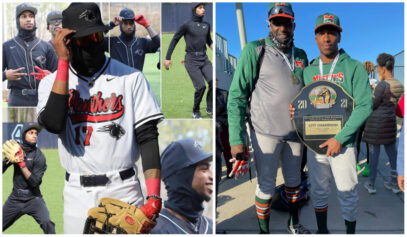Ben Jobe, who passed away last week at his home in Montgomery, Alabama at the age of 84, was much more than just a great former basketball coach and legend in the sport.
His legacy stretched far beyond, and behind, what some would call the pinnacle of his career when he led Southern University to an upset victory over Georgia Tech in the 1993 N.C.A.A. tournament.
The youngest of 16 children born to sharecroppers in Tennessee, Job played point guard at what was then Pearl High School in Nashville, then went to attend Fisk University, where he starred on the basketball team, on an academic scholarship. He received a bachelors degree in health and physical education in 1956, then coached high school basketball before traveling to Africa to coach different sports at a junior college.
He returned home in the early ’60s and earned a masters degree from Tennessee State University in 1963. He was working toward a doctorate at the University of Tennessee, Knoxville, but walked away from those pursuits due to the campus’ toxic racial atmosphere.
He was outspoken about racism throughout his life, unafraid to speak about the inequities that he and his fellow HBCU coaches, players and programs had experienced. He was featured in the 2008 Peabody Award-winning ESPN documentary, Black Magic, which told the story of African-American basketball players and coaches at historically black colleges during the civil rights era and was overseen and produced by The Shadow League’s C.E.O. and Founder, Keith Clinkscales.
Jobe was connected to the game’s womb, having been a protg of Hall of Fame coach and one of the sports’ great and most important innovators, John McLendon, who studied basketball and was mentored as a student at the University of Kansas by its inventor, Dr. James Naismith.
Jobe incorporated McLendon’s philosophy of a fast-paced offense that demanded a shot within eight seconds of every possession and shooting the ball close to 100 times per game. His prolific scoring squads were called the Runnin and Gunnin Jaguars.
During his twelve years at Southern, he produced future pros like Bobby Phills and Avery Johnson, who is one of the most beloved former players with the San Antonio Spurs franchise and now the head coach at the University of Alabama.
Much more than simply a legendary and accomplished coach, Jobe understood that his true calling was as an educator who used the basketball court as his classroom. In addition to skill development and piling up wins, he felt that his most important job was character development and molding teenage boys into men that could have something constructive to add to society.
I want my players to be Superman on the court, and then go back to class and be Clark Kent, he told The St. Louis Post-Dispatch in 1997.
He would voice his frustration at what he saw as obvious double-standards, such as the elevated praise and admiration that Duke University’s fast-break offense received in the late 1970s, a philosophy that was developed decades earlier by his mentor, McLendon.
Duke did it, it was genius, Jobe said in Black Magic. We did it, its jungle ball.
He went on to become a head coach at the University of Denver for a time and was an assistant coach with the Denver Nuggets, Georgia Tech and the University of South Carolina as well. But he made his mark at our nation’s HBCU’s.
In addition to being the head coach at Southern, he also ran the programs at South Carolina State, Tuskegee and Alabama A&M, among others, during his career.

